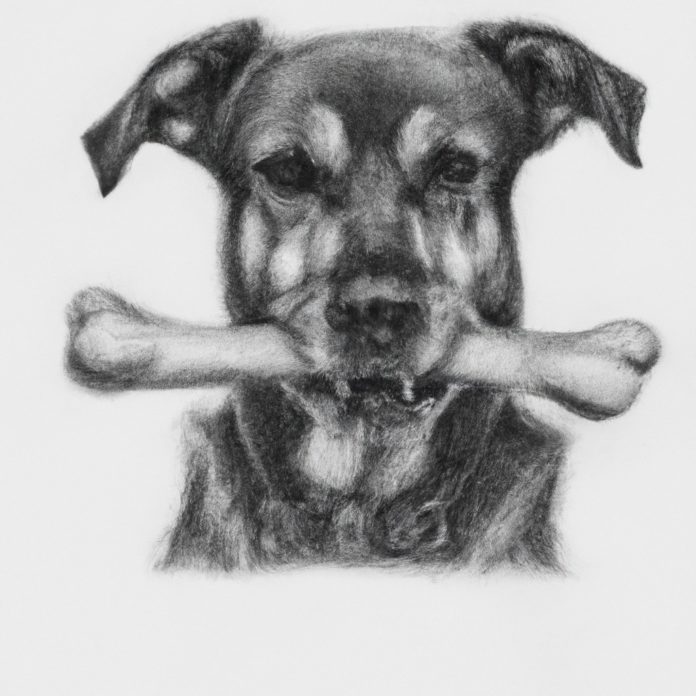Dear VetBabble,
I’ve noticed my dog has severely stinky breath that smells like poop. It has me concerned and I’m wondering whether my dog might have a dental issue or could be eating poop. Do you think I should take her to the vet? Please share your thoughts on this issue and how I can address it.
Causes of Stinky Dog Breath
Bad breath in dogs can be a sign of various issues, ranging from dental problems to dietary habits. It’s crucial to determine the underlying cause of your dog’s bad breath to ensure that they receive the appropriate care and attention. Here are some potential causes of stinky dog breath:
- Gum Disease and Dental Problems: One of the most common causes of bad breath in dogs is poor dental hygiene. Plaque and tartar buildup can lead to gum disease, which can cause bad breath. Furthermore, infected or decaying teeth can also be a source of foul-smelling breath.
- Eating Feces: Dogs are known to consume feces on occasion, a behavior known as coprophagia. If your dog is eating poop, it could result in bad breath. Not only is this habit unappealing, but it can also be harmful to your dog’s health as it can expose them to bacteria and parasites.
- Underlying Health Issues: In some instances, bad breath can also indicate an underlying health issue. Certain medical conditions such as kidney disease, diabetes, or gastrointestinal problems can lead to bad breath in dogs. It’s important to consult a veterinarian if you’re concerned about your dog’s breath.
To help you address your dog’s bad breath, we’ve created informative resources that can guide pet owners on best practices.
Preventative Dental Care for Dogs
Regular dental care is crucial for maintaining your dog’s overall health. By taking an active role in your dog’s dental hygiene, you can prevent various dental issues and keep their breath smelling fresh. Here are some essential tips on preventative dental care:
- Brushing Teeth Regularly: Good dental hygiene begins with regular brushing. Just like humans, dogs require routine dental care to prevent plaque and tartar buildup. Learn how to maintain your dog’s dental health by visiting our article on Brushing Your Dog’s Teeth: Preventative Dental Care.
- Dental Diets and Treats: Supplements such as dental chews and treats can help reduce tartar development and keep your dog’s teeth clean. Consult with your veterinarian to find appropriate dental diets for your dog.
- Regular Veterinary Check-ups: Ensure your dog receives regular dental checkups as part of their routine veterinary care. A professional veterinary examination can identify early signs of dental issues and offer treatment options.
Additionally, consider our article on Dog Teeth Cleaning & Dental Care for a comprehensive guide on maintaining your dog’s dental health.
Addressing Coprophagia
If you suspect that your dog’s bad breath might be a result of them eating poop, it’s essential to address this habit. Not only does it lead to bad breath, but it can also put your dog’s health at risk. Here are some ways to manage and eliminate coprophagia:
- Keep the Environment Clean: Remove feces from your yard or living area regularly to avoid giving your dog the opportunity to consume them.
- Provide a Balanced Diet: Your dog might be eating poop due to an insufficient diet or a lack of essential nutrients. Make sure to consult your veterinarian to ensure that your dog is receiving a well-balanced and nutritious diet.
- Training and Behavior Modification: Training your dog to avoid feces can also help curb this undesirable behavior. Obedience training, combined with positive reinforcement and redirection, can help stop your dog from eating poop.
For more information on addressing this issue, check out our article on Why Does My Dog Eat Poop?.
In conclusion, your dog’s bad breath could be a result of poor dental hygiene, coprophagia, or an underlying health issue. We recommend scheduling an appointment with your veterinarian to address your concerns and discuss the appropriate course of action. Remember, taking care of your dog’s dental health and addressing any problematic behaviors can significantly improve their quality of life.
Note that dental care is also essential for cats; learn how to care for your feline friend’s teeth with our article on Brushing your Cat’s Teeth: Dental Care for your Pet.









